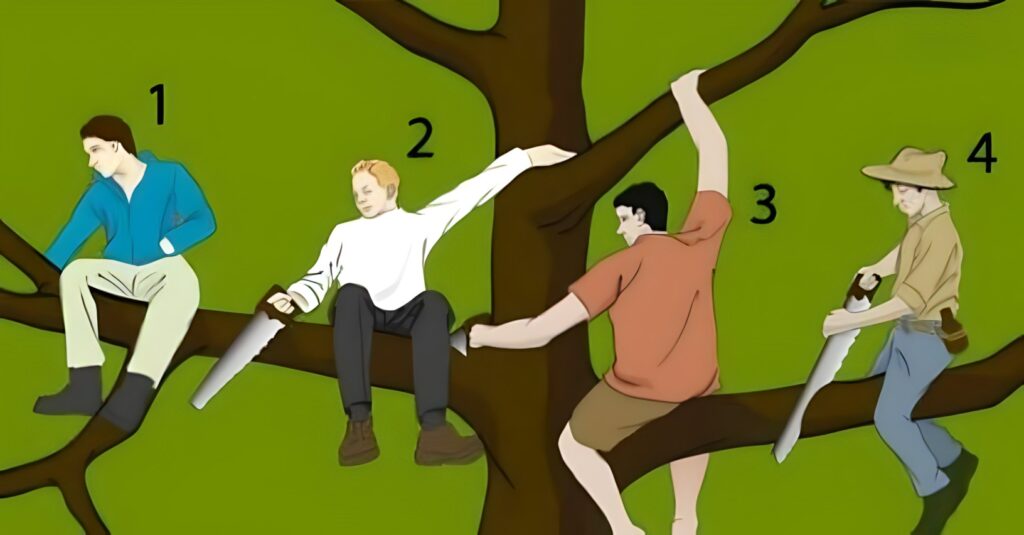In the journey of self-discovery, exploring how we approach decision-making can provide profound insights into our personality traits. One simple yet powerful way to uncover these tendencies is through a captivating visual test. The test challenges you to decide who is making the poorest decision in an image that features four individuals in a precarious situation. Your choice reveals a lot more about your character than you might think.
Understanding the Visual Scenario

The image presents four individuals, each engaged in actions that appear questionable. The challenge is to pick the person you believe is making the poorest decision. While it may seem like a test of spotting ‘stupidity,’ the underlying goal is to reflect on different decision-making styles and personal inclinations. So, who do you think is making the worst choice? Let’s dive into the deeper meanings behind each character.
Person 1: The Quiet Observer
If you chose Person 1, the individual quietly sitting and looking away from the chaos, this reflects a preference for avoiding confrontation. You likely value peace, serenity, and a scandal-free existence. Confrontation makes you uncomfortable, and you might prefer to distance yourself from conflicts rather than face them directly.
Person 2: The Impulsive Reactor
Did you choose Person 2, the person acting impulsively? This suggests you tend to react quickly and emotionally to life’s challenges. You’re someone who dives headfirst into situations without always fully thinking them through. This makes you dynamic, energetic, and often admired for your boldness.
Person 3: The Flexible Problem Solver
If Person 3 caught your attention, you are likely someone who is adaptable and pragmatic. This individual reflects a practical approach to challenges, someone who finds solutions even in difficult situations. You thrive in environments that require flexibility and perseverance, and you’re often admired for your ability to think on your feet.
Person 4: The Passionate Idealist
Finally, if Person 4 stood out to you, you’re likely a person who is driven by your beliefs and values. You’re a passionate idealist, often making decisions based on principles rather than pragmatism. This makes you a natural leader and someone capable of driving significant change in your environment.
Analyzing Different Decision-Making Styles
Each of these four characters represents a unique decision-making style. Let’s break down what each one says about you:

- Person 1: The Quiet Observer – You value peace and avoid conflict, but this could mean missing out on addressing problems before they grow.
- Person 2: The Impulsive Reactor – You’re dynamic and bold, but your emotional spontaneity may sometimes lead to regrettable decisions if not balanced with reflection.
- Person 3: The Flexible Problem Solver – You’re adaptable, pragmatic, and always ready with solutions, making you a great problem-solver in competitive or challenging environments.
- Person 4: The Passionate Idealist – You’re driven by your beliefs and values, which makes you a powerful force for change, though it’s essential to balance emotion with reason for long-term success.
Each of these traits has its own strengths and weaknesses, and recognizing which style best describes your approach to decision-making can help you navigate life more effectively.
Conclusion: Embrace the Power of Self-Reflection
This simple visual test offers much more than entertainment; it provides meaningful insights into how you approach life’s challenges and decision-making. Each character represents a part of us, and by understanding our tendencies, we can work to improve the areas that need it while celebrating the strengths that make us unique
So, whether you’re the quiet observer, the impulsive reactor, the flexible problem solver, or the passionate idealist, remember that every decision-making style has its place. The key is knowing when and how to use each one effectively. Embrace these insights, and apply them to grow and adapt in all aspects of your life.





